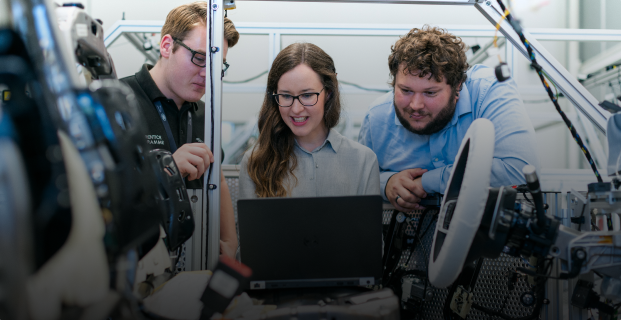Concrete is one of the most important building materials in the world, used in a variety of construction projects, from roads and bridges to residential and commercial buildings. A key aspect in concrete production is the optimization of the production process, which contributes to obtaining a material with excellent properties, increasing production efficiency and reducing costs.
01 / Process Automation
One of the key trends in concrete production is the increasing use of automation. Automatic concrete mixing units allow for precise and repeatable mixing of ingredients, which eliminates human errors and ensures uniformity of the mixture. This means that the quality of concrete is carefully controlled at every stage of production.
02 / Quality Control
As technologies become more advanced, there are more and more complex problems to solve. Soft skills such as creativity, critical thinking and problem solving allow us to take on challenges and find innovative solutions.
03 / Custom-made concrete mixes
Another important aspect of optimizing concrete production is adapting the mix to the specific needs of the construction project. Instead of using uniform mixes, manufacturers can develop concrete formulations that take into account local conditions and requirements. This results in a material with excellent durability and performance, which is important for sustainable development.
04 / Environmental Protection
Nowadays, environmental protection is a priority. Optimizing concrete production allows you to reduce the consumption of raw materials and energy, which translates into a lower impact on the ecosystem. Moreover, more precise control of the production process allows for a reduction in waste and unnecessary pollution.
„In the digital era, soft skills are an integral part of every professional’s achievements”.
Matt Davis, Product Manager, InsuranceBox
05 / Future Perspectives
Optimizing the concrete production process is a continuous process that aims to meet growing market expectations and the needs of construction projects. The development of technologies such as artificial intelligence and the Internet of Things can further improve concrete production and adapting the mix to current needs.
In summary, optimizing the concrete production process is crucial for durable, efficient and sustainable structures. Thanks to automation, quality control, mix adjustment and environmental protection, concrete producers can deliver material that meets the highest standards. Constantly developing technologies promise even more effective and ecological concrete production in the future, which will benefit the entire construction industry and the natural environment.

Tomasz Krajewski
CEO





